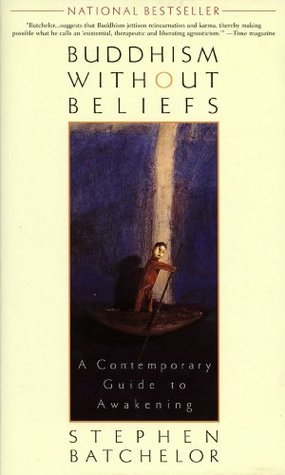More on this book
Community
Kindle Notes & Highlights
Read between
January 20 - January 26, 2020
Awakening is no longer seen as something to attain in the distant future, for it is not a thing but a process—and this process is the path itself. But neither does this render us in any way perfect or infallible. We are quite capable of subverting this process to the interests of our far-from-extinct desires, ambitions, hatreds, jealousies, and fears.
This craving to be otherwise, to be elsewhere, permeates the body, feelings, perceptions, will—consciousness itself. It is like the background radiation from the big bang of birth, the aftershock of having erupted into existence.
We neither have to adopt the literal versions of rebirth presented by religious tradition nor fall into the extreme of regarding death as annihilation. Regardless of what we believe, our actions will reverberate beyond our deaths. Irrespective of our personal survival, the legacy of our thoughts, words, and deeds will continue through the impressions we leave behind in the lives of those we have influenced or touched in any way.
Failure to summon forth the courage to risk a nondogmatic and nonevasive stance on such crucial existential matters can also blur our ethical vision. If our actions in the world are to stem from an encounter with what is central in life, they must be unclouded by either dogma or prevarication. Agnosticism is no excuse for indecision.
No amount of meditative expertise from the mystical East will solve this problem, because such restlessness and lethargy are not mere mental or physical lapses but reflexes of an existential condition. Focused awareness is difficult not because we are inept at some spiritual technology but because it threatens our sense of who we are. The apparently unthreatening act of settling the mind on the breath and observing what is occurring in the body and mind exposes a contradiction between the sort of person we wish to be and the kind of person we are. Restlessness and lethargy are ways of evading
...more
FIND A QUIET, comfortable place. Sit still. Make sure the back is unsupported and upright, but not tense. Check to see if there are any points of tension in the body: the shoulders, the neck, around the eyes. Relax them. Take three long, slow, deep breaths. Then let the breathing resume its own rhythm, without interference or control. The formal practice of mindfulness begins with a heightened awareness of the sensory array that is the body. Central to this is breathing. When meditating on the breath, let go of any picture you have of some invisible stuff being sucked in then pumped out of the
...more
This highlight has been truncated due to consecutive passage length restrictions.
By not seeing well, I misconstrue things: like entering the pottery shed in the yard to discover a snake in one corner. My heart accelerates and I am frozen with fear. Only when my eyes get used to the light do I realize it is a coil of hose. Might a similar confusion color my experience of life as a whole: a confusion that not only blinds me to what is happening but at the same time anxiously construes a fictional world that seems utterly real? I have a strange sense of inhabiting a reality in which I do not quite seem to fit. I suspect that I keep getting tangled up in things not because I
...more
My compassion readily extends to those on one side of the invisible barrier that segregates me from the rest of the world. My knee, my friends, my family, my community, my colleagues—all belong to the domain of “me” and “mine.” The bonds that unite us, be they common parents or an arbitrary preference for the same football team, are exaggerated by desire for belonging and fear of rejection. This in turn leads to a hardening perception of “us” and “them.” In erecting this invisible barrier, perception again determines my mood: I feel good about “us,” bad or indifferent toward “them.”
For as long as these fragile moments last, I inhabit a world where all living things are united by their yearning to survive and be unharmed. I recognize the anguish of others not as theirs but as ours. It is as though the whole of life has been revealed as a single organism: reaching out to someone in pain is as natural and unself-conscious as my hand’s reaching out to my injured knee.


